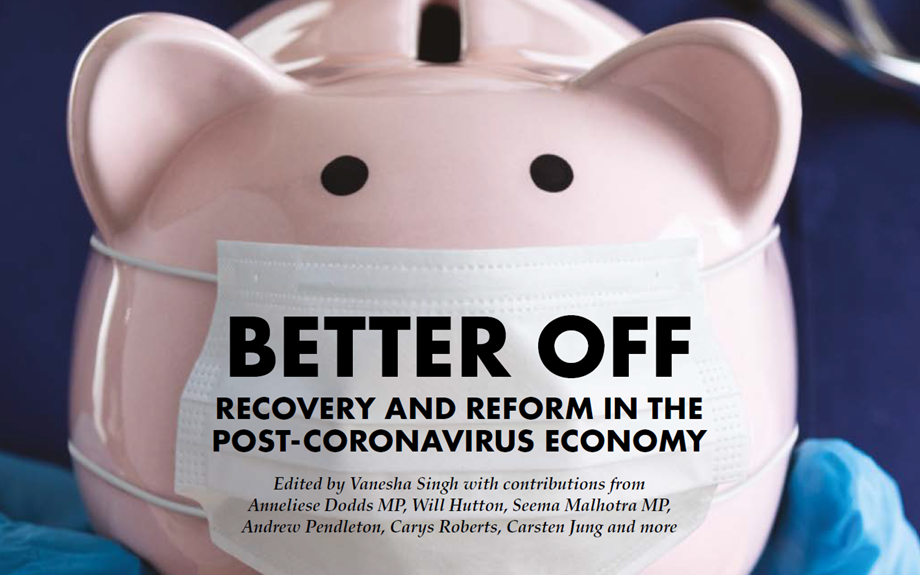No society and economy can build sustainable prosperity without widespread insurance and long-term savings to protect against risk and ensure life-long income. For those at the lowest ends of the income scale, this is especially true; if you can’t afford to lose it, it is vital to protect it with insurance. That is why so much of the modern UK insurance and long-term savings market dates back to mutuals and friendly societies founded by communities struggling with industrial and rural poverty in the 18th and 19th centuries.
Today, the UK insurance and long-term savings market is world-leading. London is the international capital of insurance and the sector overall is the fourth largest in the world and the largest in Europe. It employs over 300,000 people in well-paid, skilled jobs and contributes over £29bn to the UK economy. To some on the left of British politics, the size and strength of this pillar of the UK financial services sector make it a behemoth of capitalism. In fact, both the economic and structural purpose of insurance, and many of its key public policy concerns, make for common cause with those who identify with a progressive political viewpoint. This chapter sets out the benefits of a thriving insurance and long-term savings market to those who want a more equal society, and notes some of the ways in which insurers are natural partners of the state. It identifies three areas of policy for progressive policymakers and the sector to work on together.
The sector is vital to the post-Covid-19 bounce-back of our economy,.
The role of insurance in a healthy and prosperous economy is much less well understood than banking but as the UK faces the greatest economic crisis since the 1930s, it is worth looking a little closer. The sector is vital to the post-Covid-19 bounce-back of our economy, sustaining supply chains through trade credit insurance, managing basic risks for businesses unable to afford anything else to go wrong, investing in social housing and the corporate debt of large companies and maintaining its regional employment base (two thirds of insurance-related employees are currently outside London). Investing directly in small and medium-sized enterprises (SMEs) is currently very difficult to do because of insurers’ strict capital rules. But innovative proposals from TheCityUK offer new ways in which insurers could help re-float SMEs, if prudential regulation rules were adjusted by the Bank of England after the UK leaves the Brexit transitional period.
Insurers and long-term savings providers therefore offer some key benefits for any advanced economy. By acting as shock absorbers, they enable companies to grow, safe in the knowledge that floods, fires, employee accidents and director mistakes are less likely to be financially ruinous; these typically result in £7bn of claims, every year. By acting as long-term investors, insurers provide a key source of patient capital to firms, looking beyond the near-term preoccupations of the stock market. By providing retirement, protection and long-term savings products, they help companies provide for employees’ later life, while also helping them navigate workplace illness. This makes the sector a key part of the welfare framework in most developed economies.
By acting as shock absorbers, they enable companies to grow, safe in the knowledge that floods, fires, employee accidents and director mistakes are less likely to be financially ruinous;
Even so, not every risk can be covered - as became apparent during Covid-19, when the limits of the insurance cover firms with business interruption became clear . Insurance works on the basis that the premiums of the many pay for the claims of the few. This model cannot work in a pandemic when nearly all businesses are shut down, and insurers have never claimed it does. Even so, insurers expect to pay £1.7bn in Covid-19 related claims to businesses and individuals, covering a minority of business interruption claims, cancelled travel and school trips, postponed events, supply chain failures and urgent private medical care. If the UK, or other major economies, are to develop a more advanced system of widely affordable and available business cover for pandemics, it will require significant involvement from their governments.
Such partnership with the state is the norm for the insurance and long-term savings sector and there are three major opportunities ahead to develop it further, beyond any Covid-19 related challenges.
The first opportunity is developing the role of the workplace, building on the success of auto-enrolment which nudges and incentivises employees into retirement saving. The higher than expected rates of retention here are a reminder that employees typically have high rates of trust in their employer, especially on financial matters. We should build on this, making workplaces a natural place for employees to access financial guidance on how to protect themselves, minimise debt and understand how money works. We should also consider incentivising the provision of workplace protection insurance that helps employees with additional support and pro-actively deals with such common conditions as muscular-skeletal problems and mental health challenges, conditions which otherwise result in long periods of sick leave and increased pressure on the NHS.
The fight against climate change leads to a second opportunity. As carriers of insurance risk and major long-term investors across the economy, insurance and long-term savings firms have a major stake in us successfully moving to a world with less than 2˚C global warming. Critical to this will be the freedom to transition investments away from browner assets to more sustainable green options, including more significant infrastructure spending. Also vital will be continued innovation in the global insurance market to be able to provide ongoing protection to those most exposed to the risks of a rapidly warming world.
The UK’s ageing population offers a further opportunity for close partnership between insurers and the state. A baby girl born in 2018 in the UK can now expect to live to 90 and by 2050, globally there will be more people aged over 65 than under 15 for the first time in history. This is welcome but the challenges posed to our health and welfare systems is huge. To meet it, we need to look at a more active partnership between governments and their insurance and long-term savings markets to help provide sustainable retirement income, affordable social care provision and support for disability.
The challenges of the 21st century are significant; a warming planet, ageing populations, more complex worker needs to name but three. But all offer opportunities for a more dynamic partnership between governments and the insurance and long-term savings market.
In the UK, we have plenty of experience of such partnerships; recent examples include enabling flood and terrorism insurance through the Flood Re and Pool Re schemes, the pensions dashboard project and auto-enrolment in workplace pensions to name but a few. These arrangements are often difficult to develop and maintain; they require work, commitment and good will on both sides. Critically, progressive governments have to be comfortable with the fact that the owners of insurance and long-term savings companies have to see returns on their capital. If the state doesn’t want to run everything, it has to be comfortable that those who do, also make money. But there is no reason, as the examples above illustrate, why this need act as a barrier to work together.
The challenges of the 21st century are significant; a warming planet, ageing populations, more complex worker needs to name but three. But all offer opportunities for a more dynamic partnership between governments and the insurance and long-term savings market. The world has changed beyond recognition from the circumstances in which the modern insurance market began to develop. But the basic needs of individuals, families and businesses to protect themselves and plan for the long-term remain and offer a shared platform of mutual interest with those who believe in progressive values.
 In an extract from the new ABI and Fabian Society policy report, 'Better off: Recovery and Reform in the post-Coronavirus economy', ABI Director General Huw Evans explores how a more dynamic partnership between government and the insurance and long-term savings sector can be beneficial for all.
In an extract from the new ABI and Fabian Society policy report, 'Better off: Recovery and Reform in the post-Coronavirus economy', ABI Director General Huw Evans explores how a more dynamic partnership between government and the insurance and long-term savings sector can be beneficial for all. 
